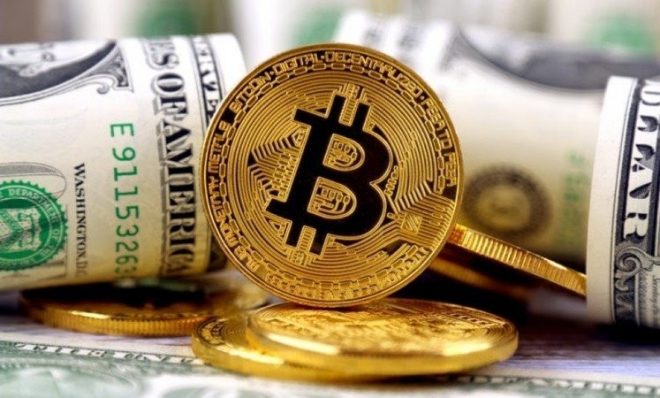
Where can I acquire bitcoins?
An online exchange like as Coinbase is the most convenient way to purchase bitcoins. You can purchase, trade, transmit, receive, and keep bitcoins with Coinbase without having to store them yourself using public and private keys.
Here’s how it works if you opt to buy and store bitcoins outside of an online exchange.
Read more: What is bitcoin and how does it work
Each user who joins the Bitcoin network is given a public key, which is a long string of letters and numbers that functions similarly to an email address, as well as a private key, which functions similarly to a password.
When you acquire bitcoins or transfer / receive bitcoins, you are given a public key, which you can use to unlock a virtual safe and gain access to your funds.
Anyone with your public key can send you bitcoins, but only the owner of the private key has access to the bitcoins in the “virtual vault” after they’ve been delivered.
Bitcoins can be stored in a variety of ways, both online and offline. A virtual wallet is the simplest solution.
After selling bitcoins, the Coinbase app enables moving monies from your wallet to a bank account as straightforward as transferring funds from one bank to another. Exchanges like Coinbase, like traditional bank transfers or ATM withdrawals, have a daily limit, and transactions can take anywhere from a few days to a week to execute.
What exactly is the distinction between Bitcoin and Blockchain?
A virtual ledger called blockchain records all bitcoin transactions and public keys. In some ways, the general ledger is a list of transactions in chronological order. This book is replicated in its entirety to every computer linked to the Bitcoin network, and it is regularly examined and archived utilizing massive processing power all over the world.
The blockchain concept has shown to be powerful and adaptable, and several non-cryptocurrency blockchains are now in use for supply chain management and other purposes. The term “Bitcoin Blockchain” refers to a digital ledger that keeps track of Bitcoin transactions and private keys.
How is bitcoin used?
Laszlo Hanets, a bitcoin enthusiast, advertised on a forum in 2013 that anyone who delivered two pizzas to his Jacksonville, Florida house would receive 10,000 BTC (about $ 25). These two pizzas, purchased at a local Papa John’s by another bitcoin early adopter, have gone recorded in history as the first successful purchase of non-virtual items using bitcoin. Bitcoins are, thankfully, considerably easier to use these days!
It’s simple: trading with BTC is not that different from trading with a credit or debit card. However, instead of asking for your card details, all you have to do is enter the payment amount and the provider’s public key (similar to your email address) via the wallet app. (For personal transactions using smartphones or tablets, a QR code is often displayed to facilitate the process. When the code is scanned, the wallet application automatically enters the relevant information.)
It’s Private: One of the benefits of paying with bitcoin is that it limits the amount of personal information you have to provide. You only need to provide your full name and address if you are purchasing physical items that require shipping.
It’s flexible: What you should do with your bitcoins depends entirely on your personal interests.
Here are some ideas:
- You can sell it for cash on an exchange or at a Bitcoin ATM.
- You can spend them online or in physical stores just like any other currency by using a bitcoin debit card.
- You can keep some or all as part of your investment and savings strategy.
- You can make a donation to a charity close to your heart.
And if you have a large budget and dream of an unfulfilled career as an astronaut? Richard Branson’s Virgin Galactic is excited to accept BTC in exchange for the opportunity to participate in one of his upcoming space tourism missions.
What Characterizes Bitcoin as a Novel Currency?
Bitcoin is a worldwide currency. You can send bitcoins anywhere in the globe just as easily as you can pay with cash. There are no weekend locks, no fees for accessing your own money, and no artificial limits with Bitcoin.
Bitcoin is a non-reversible currency. Bitcoin functions similarly to cash in that the sender cannot reverse the transaction. Credit cards, traditional internet payment methods, and banking transactions, on the other hand, can all be canceled after payment – sometimes months after the original transaction – thanks to the central middlemen that handle the transactions. This increases the risk of fraud for businesses, which could result in higher credit card costs.
Bitcoin is a private currency. When you pay with Bitcoin, you won’t get a bank statement or have to give the merchant any additional personal information. Other than the Bitcoin addresses and sums involved, Bitcoin transactions do not carry any identifying information.
Bitcoin is a secure cryptocurrency. Bitcoin payments are intrinsically more secure than regular debit/credit card transactions due to the cryptographic architecture of the Bitcoin network. There is no need to provide sensitive information over the internet when purchasing with bitcoin. There is virtually minimal chance that your financial information or identity will be taken.
Bitcoin is unrestricted. Every transaction on the bitcoin network is made public. This means that there is no room for a transaction to be disrupted (unless in the extremely improbable event of a 51 percent assault) or for a change in bitcoin supply. Bitcoin’s core software is free and open source, which means anyone may look at the code.
Bitcoin is secure. The Bitcoin network has never been successfully hacked in over a decade. Because the system is free and open source, a large number of computer scientists and cryptologists have been able to look into every facet of the network’s security.
